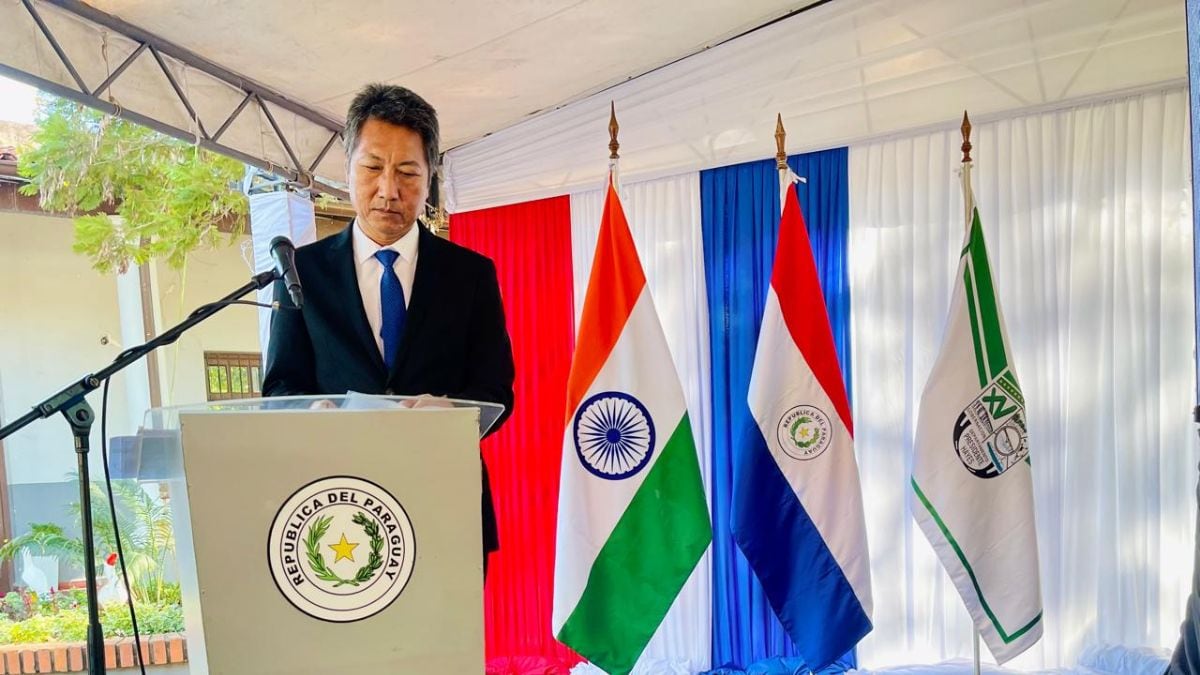

India has appointed Aliawati Longkumer as its next ambassador to North Korea, signaling a full-fledged return to diplomatic presence in Pyongyang after nearly four years without a resident envoy. The announcement was made on Monday, June 16, 2025, by the Ministry of External Affairs in New Delhi. Longkumer, a 2008-batch Indian Foreign Service officer, is currently serving as the charge d'affaires at the Indian Embassy in Paraguay and is expected to take up his new post in Pyongyang shortly.
This move follows India's reopening of its embassy in Pyongyang in December 2024, after it was temporarily closed in July 2021 due to COVID-19 restrictions. The previous ambassador, Atul Malhari Gotsurve, had left North Korea on a special train via the North Korea-Russia border when the embassy shut down. He was later appointed as India's Ambassador to Mongolia in March 2024.
India's decision to re-establish its diplomatic presence in North Korea reflects the importance it places on maintaining steady engagement with the country, despite complex geopolitical dynamics in the Korean peninsula. India and North Korea have shared cordial diplomatic ties since the early 1960s, with formal diplomatic relations established in December 1973, in line with India's policy of non-alignment during the Cold War. Over the years, the two countries strengthened ties, and India emerged as North Korea's third-biggest trade partner.
However, bilateral engagement decreased after the UN imposed sanctions on North Korea over its escalating nuclear and missile development in 2016 and 2017, prompting India to cut off economic exchanges. Despite this, India continued to maintain diplomatic relations, with North Korea maintaining embassy operations in New Delhi throughout the pandemic.
As ambassador, Longkumer will be responsible for managing India's limited but historically significant diplomatic presence in North Korea and advancing mutual cooperation, in line with India's principled foreign policy stance. India has consistently urged North Korea to restrain from nuclear and ballistic missile tests to ease tensions on the Korean peninsula and supports all efforts to bring about peace and stability through dialogue and diplomacy.
India's engagement with North Korea is also influenced by regional strategic concerns and the need to balance humanitarian outreach with adherence to global sanctions. India has provided humanitarian assistance, including food and medicine, to North Korea and offers training to North Korean diplomats and scientists.
The appointment of Longkumer comes at a time when a few other countries, including Bulgaria, Nigeria, Poland, and Sweden, have announced the reopening of their embassies in Pyongyang. However, North Korea's borders remain largely closed to other nations, UN agencies, and international nonprofits. Meanwhile, other countries, such as Germany, have considered a possible return but are currently opposed to resuming embassy operations due to North Korea's support for Russia's war against Ukraine.
India's continued diplomatic engagement with North Korea reflects a nuanced approach to diplomacy, balancing national interests with international responsibility. Despite North Korea's perceived support for Pakistan's missile development program, India has maintained channels of dialogue, signaling its commitment to playing a responsible role in global security.